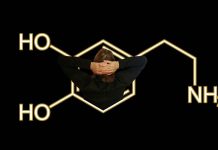THUNDER BAY – HEALTH – Current public perceptions about alcohol- and other drug-use disorders are out of step with scientific knowledge. There remains a general belief that these disorders are essentially moral failings and/or bad choices. This view is completely at odds with research demonstrating that these disorders are indeed a brain disease. A documentary called “The Anonymous People” features personal narratives that call for a fundamental reframing of the national conversation about alcohol and substance-use disorders and recovery.
What do Alcohol Use Disorders Look Like
“It is important for scientists to have a good sense of what alcohol-use disorders look like in the real world,” said George F. Koob, Ph.D., NIAAA director. “It is an ‘equal opportunity’ disease that cuts across economic, occupational, racial/ethnic, and gender lines. It is a disease that is profoundly devastating at the personal and societal level. It is a disease that, to this day, is shrouded in stigma and shame.” Koob will be part of the panel that discusses this documentary after its screening at the 39th Annual Research Society on Alcoholism in New Orleans June 25-29, 2016.
“The recovery community is undergoing a transformation,” added Robert Huebner, Ph.D., director of the NIAAA Division of Treatment and Recovery Research. “In the past, it focused on anonymity and consisted primarily of small groups meeting in church basements. Now we see a very assertive recovery community that is not shy about talking about recovery in public, is organized on a national level, and is politically active at the state, regional, and national level.” He added that NIAAA, and the addiction-research field, grew out of multiple historical currents, including the rise of Alcoholics Anonymous, organizations like the National Council on Alcoholism and the Society of Americans for Recovery, and the leadership and courage of Senator Harold Hughes (D-Iowa).
Documentary Looks at Alcohol Use Disorders
“This documentary represents a very different way of talking about people with alcohol-use disorders and their recovery,” said Lorenzo Leggio, M.D., Ph.D., M.Sc., CPN Section Chief, NIAAA and NIDA. “The people in this documentary make a strong case for rejecting common stereotypes and terminology when describing individuals with alcohol- and other drug-use disorders. They argue for bringing their stories of recovery out of the shadows and talking about recovery in positive rather than negative terms. Individuals describe themselves as being ‘in long-term recovery, without using alcohol or drugs since a certain date.’ This sounds very different from traditional characterizations of personal recovery which declare first and foremost that one is an alcoholic or addict.”
This focus on deliberately reframing one’s recovery echoes the call by Senator Hughes for people in recovery to start saying that they have “gotten well” rather than referring to themselves as a “recovering alcoholic,” added Leggio. “Moreover, this documentary significantly seeks to characterize an alcohol-use disorder as a health problem, rather than a moral issue. Furthermore, this film challenges the field of alcohol research to address the issue of long-term recovery, given that the focus of much of our clinical research has been on acute care. We need more research on the complex set of factors that support long-term recovery and effective interventions to support it. Patients who achieve long-term abstinence can, especially in stressful situations, relapse after years of abstinence. This documentary reminds physicians and other health-care providers to follow their patients with alcohol-use disorders beyond acute care. In this regard, the long-term relationships between physicians, patients, and their families can play a key role in helping a patient’s recovery efforts.”
Language is fundamentally important, agreed Koob and Huebner. “We need to get away from using terms like ‘alcoholic’ and ‘addict’ and frame this disorder as we would any other health problem,” said Koob. “People who suffer from alcohol-use disorders or whose loved ones suffer from this disease need to feel comfortable about seeking help from their doctors.”
“Practitioners need to see people who suffer from alcohol-use disorders as patients for whom appropriate clinical care and treatment can and should be provided – no different from patients suffering from other health problems such as cancer or infectious diseases,” added Huebner. “The community at large needs to see alcohol-use disorders as a serious medical problem that can be treated via shared efforts. Indeed, this documentary shows that recovery from alcohol- and other drug-use disorders is possible. The personal narratives demonstrate this very well and complement the findings of NIAAA-supported research on the prevention and treatment of alcohol-use disorders.”






